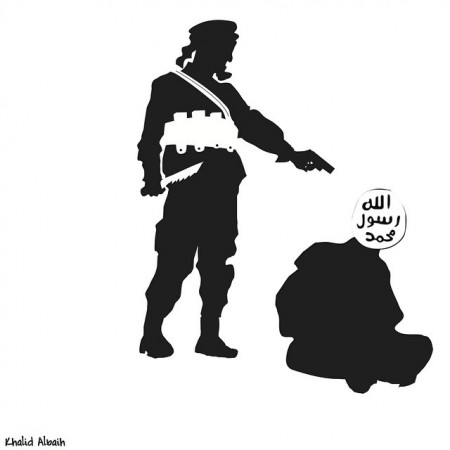
This article was originally published byE-International Relations on 5 February 2016.
Since the outbreak of the Syrian civil war in 2011, organised networks have spread out across borders, overtaking cities. The most famous of these is the ‘Islamic State of Iraq and the Levant’ (ISIL), more commonly known as ‘Islamic State’ (IS) (Flasch, 2015: 3). Militants of IS now control wide portions of territory in Iraq and Syria as well as an area in Libya. IS has killed and injured thousands of people and IS-related violence has led to the displacement of over a million people. Atrocities committed by the IS have extended to several other countries in the Middle-East, in West-Africa, and in Europe (Zerrouky, Audureau and Vaudano, 2015).
In response to attacks of IS, Iraq has requested that the United States and its allies assist it in defending itself against the group. Since September 2014, Iraq, together with the United States and several other states, has been using force against IS in Syria without the consent of the Syrian regime. Iraq acts on the basis of its right to individual self-defence and the other intervening states intervene on the basis of the right to collective self-defence. Self-defence, as well as the use of force within an authorisation given by the United Nations (UN) Security Council, constitute the two exceptions to the international prohibition on the use of force between states (Articles 51 and 42 UN Charter). An action in self-defence can be individual, when the victim state reacts to an armed attack, or collective, when other states react to an armed attack on the request of the victim state. France began its military intervention in Syria in September 2015, resorting to the rights to both individual and collective self-defence. After the terror attacks of IS in Paris on 13th November 2015, France extended its strikes, on the basis of the right to individual self-defence and asked for assistance. Several Western states, including the United Kingdom and Germany, decided to be involved in different ways in the fight against IS in Syria, invoking in particular the right to collective self-defence and, sometimes, also the right to individual self-defence. Russia too has been perpetrating strikes in Syria since November 2015 but these happen with the consent of that state. Consent by Syria to the resort to force by Russia precludes the wrongfulness of that act in relation to Russia and thus provides legal grounds for Russian military action (Article 20 of the Draft Articles on Responsibility of States for Internationally Wrongful Acts, 2001).
